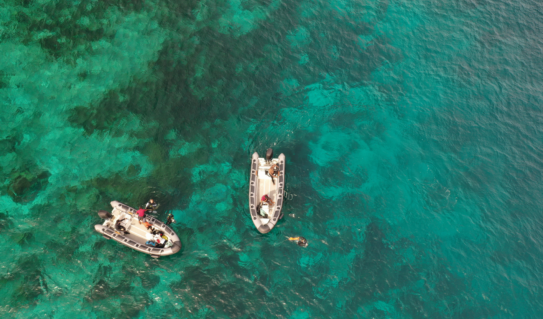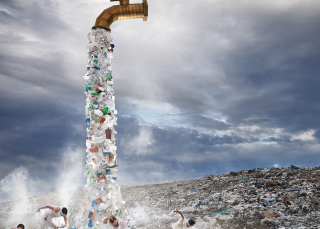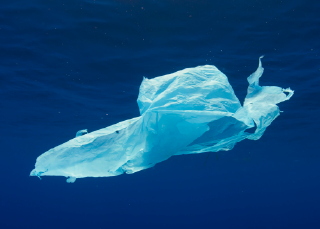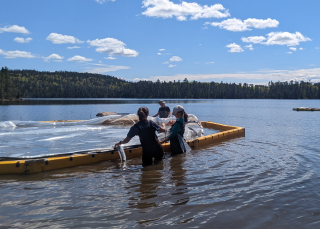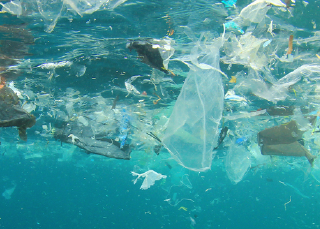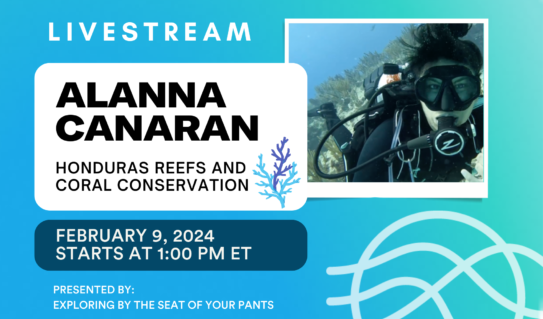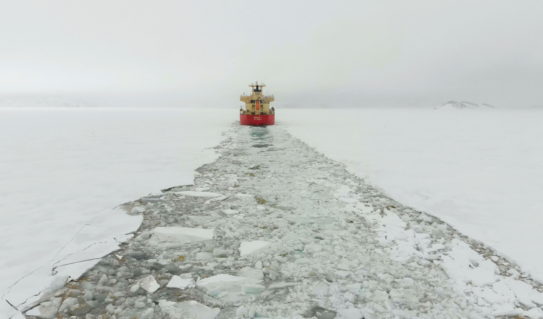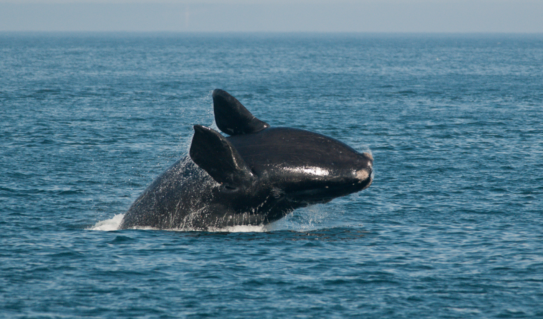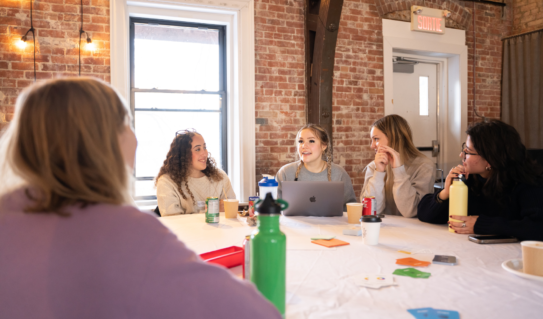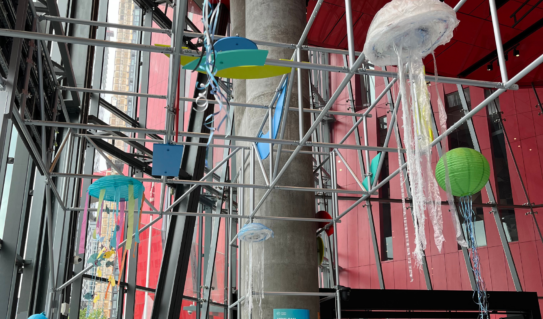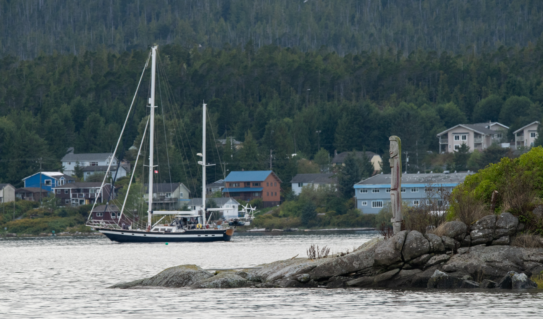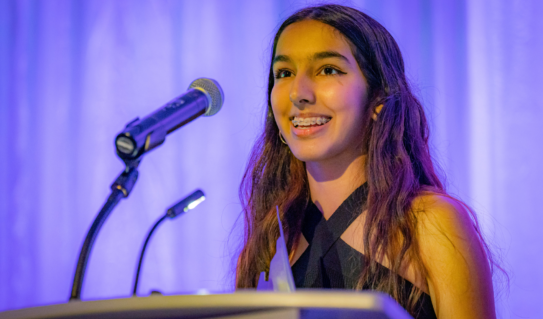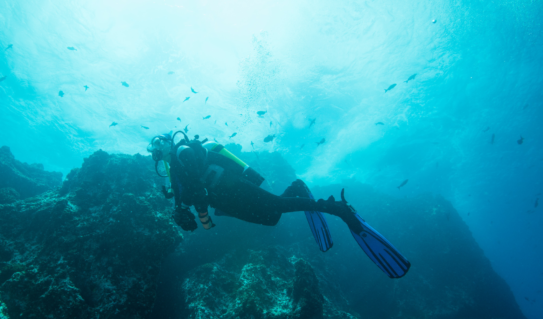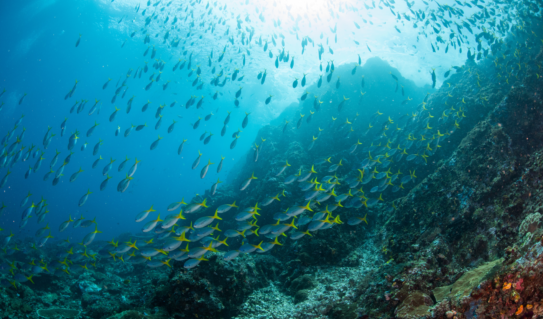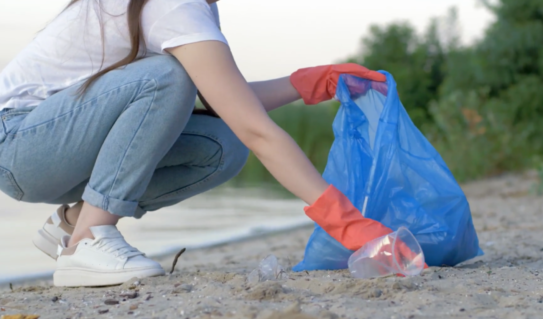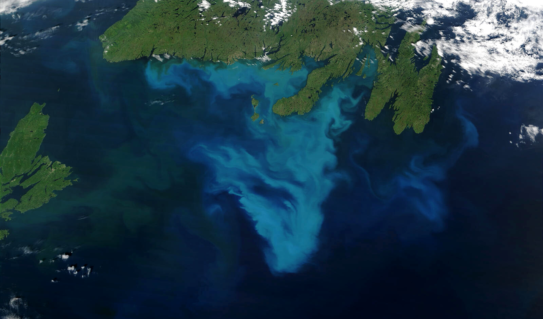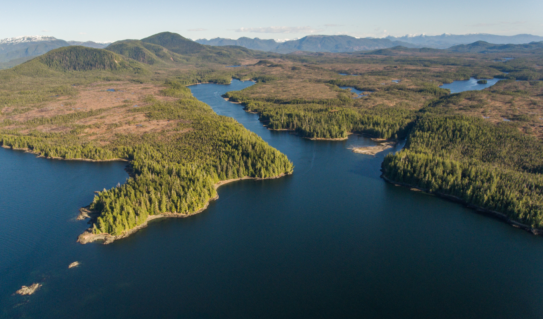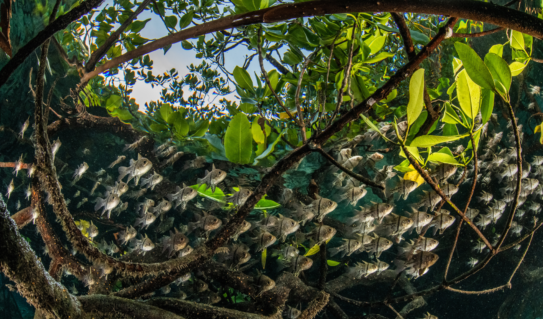Rafaela F. Gutierrez: I think waste literacy and education… it's power. And if you want to change anything in terms of plastic pollution, we need to start to make people understand that they are not only part of the problem, but they are part of the solution. Everyone can have a voice, and everyone can help a little bit to make this a reality. So we can decrease waste pollution.
Articles
A Q&A with the University of Toronto Trash Team
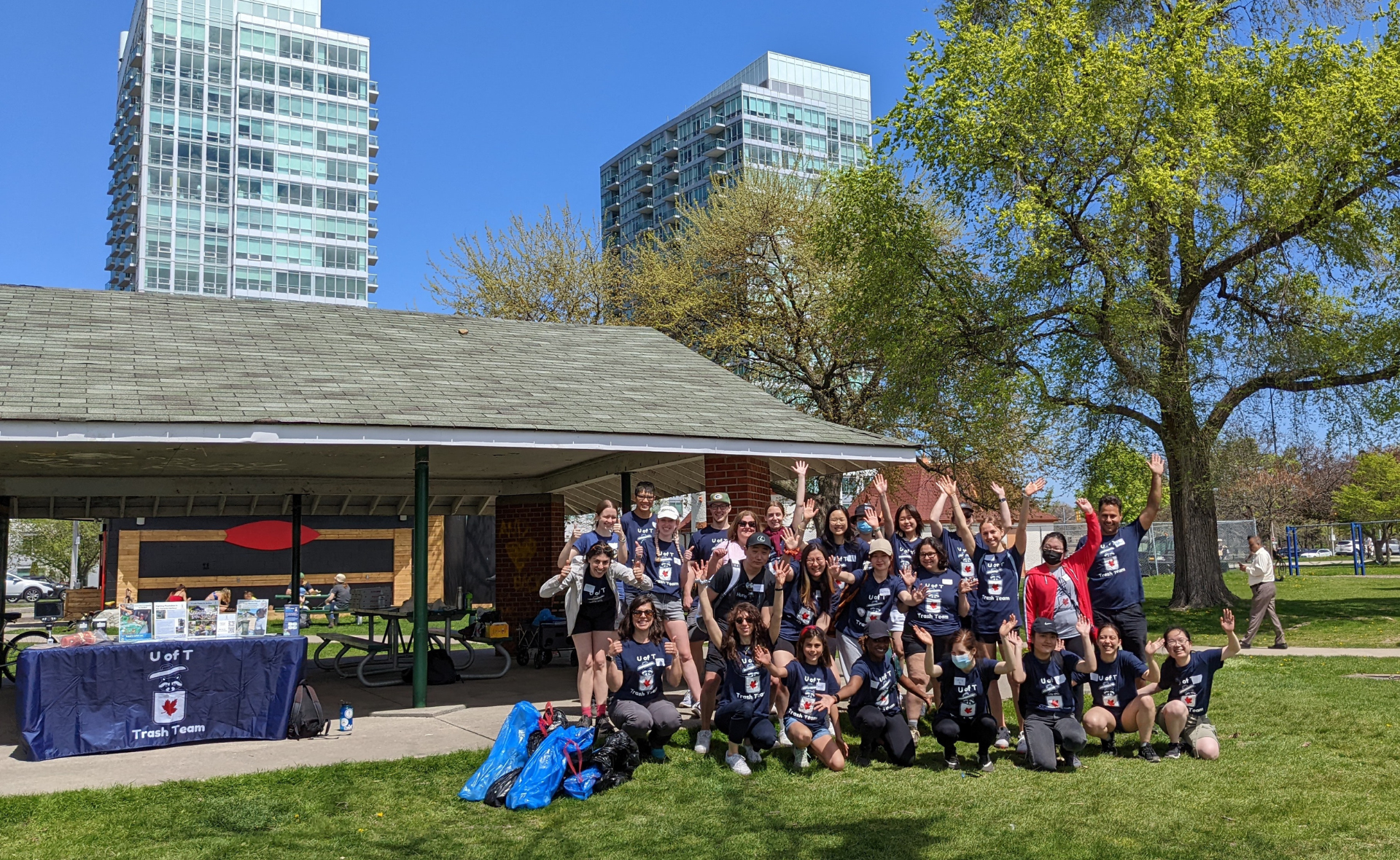
For our new collection The problem with plastic, Ocean School worked in close collaboration with the University of Toronto Trash Team. We met with two of the organization's co-founders, Chelsea Rochman and Rafaela F. Gutierrez, to discuss plastic pollution and the importance of increasing waste literacy within the community.
Rochman is Head of Operations and the Program Lead of Scientific Programming and Application at the Trash Team. She is also a professor at the University of Toronto in aquatic ecology and marine ecology. Gutierrez is the Program Lead of Social Science and Educational Programs and is a social scientist with a Ph.D.
The Trash Team is “a community outreach organization with the goal and vision of increasing waste literacy in order to reduce plastic pollution”, as Rochman describes it. The organization brings together undergraduate and graduate students, postdocs, researchers, local volunteers and staff. They have a foundation within the Rochman lab, part of the Department of Ecology and Evolutionary Biology at the University of Toronto, to be able to have all their work founded in science and facts.
Take a look at our 6 questions to the Trash Team.
The importance of collaboration to reduce waste.
Why is it so important to increase waste literacy to reduce plastic pollution?
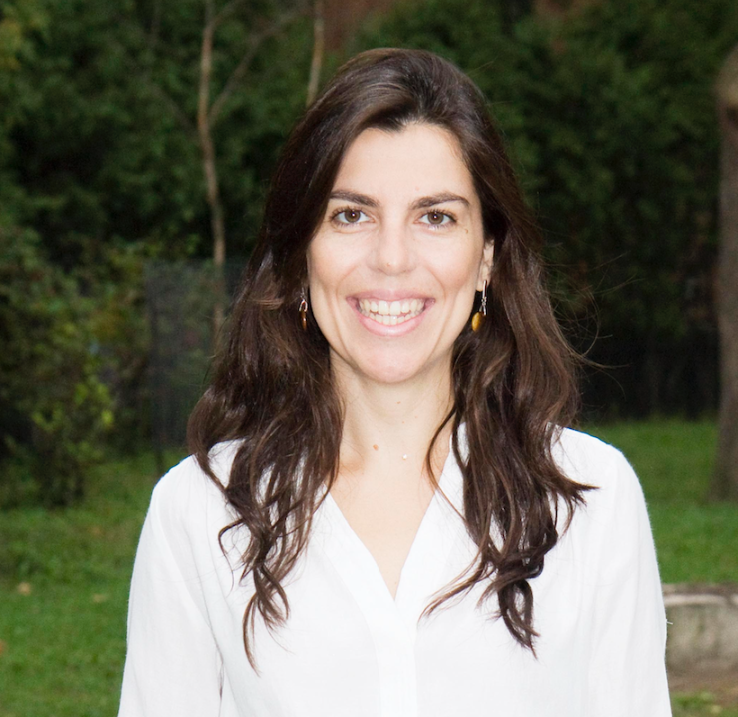
Rafaela F. Gutierrez.
Why is it important for you to work directly with the communities?
Chelsea Rochman: We really do think that solutions should be grounded in facts, informed by science, and education is empowerment. We feel like everyone should have access to the same information we have at the University. And if we just did our science within the University, we wouldn't necessarily be part of the solution on the ground.
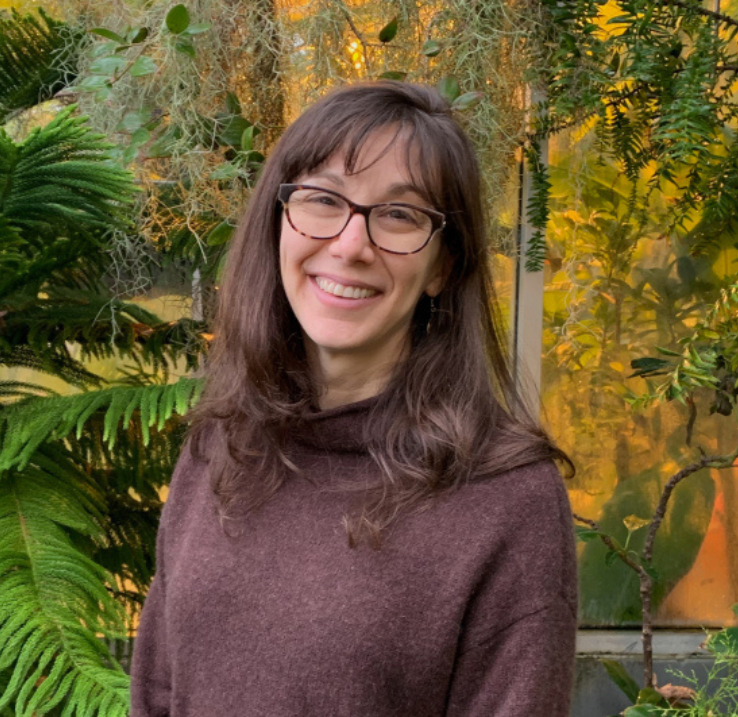
Chelsea Rochman.
You played a big part in Ocean School's new collection The problem with plastic. What role did you play in the development of this collection?
Chelsea Rochman: This all came about from a meeting with Boris Worm, [Ocean School Science Director]. So I think he reached out to us from the perspective of knowing that I work on plastic pollution and being able to advise on the science and be interviewed and featured in the video content. So from a science side, we helped review all of the content to make sure it was scientifically accurate. They filmed in our lab, as well as the waterfront and asked questions about the science.
Rafaela F. Gutierrez: We have a formal educational program for grade 5 students, and we have created 4 lessons. And so Ocean School contacted us to ask how we can change a little bit of our lessons to include more content or different perspectives. So we were heavily involved in some of the lessons. They got some parts of what we are doing and put them in a more online format.
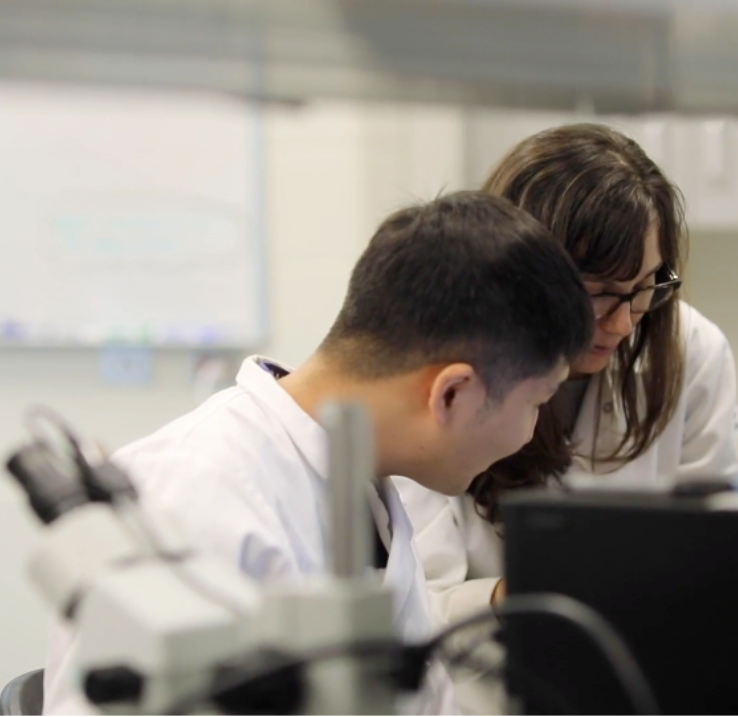
How to make a difference?
What do you think is the biggest challenge we face as a society to reduce plastic pollution, especially in the oceans?
Rafaela F. Gutierrez: It’s important to include everyone when discussing plastic pollution, everyone that is involved. I think we talk a lot about individuals and how we can make the change as a consumer. But we need to include more groups who are producing plastic, selling plastic, and regulating plastic. We need to come to an agreement on how we want to reduce plastic, and I think that’s the biggest challenge.
Chelsea Rochman: We have all the tools. I think we know how. We know what we need to do, and I think the biggest challenge is just the barrier to change, and that convenience is easier. But I would say that in the 15 years, we've seen a lot of change and a lot of increased awareness and a lot of things that give us hope. So that we just have to ride the wave and push it harder and faster in order to make a difference.
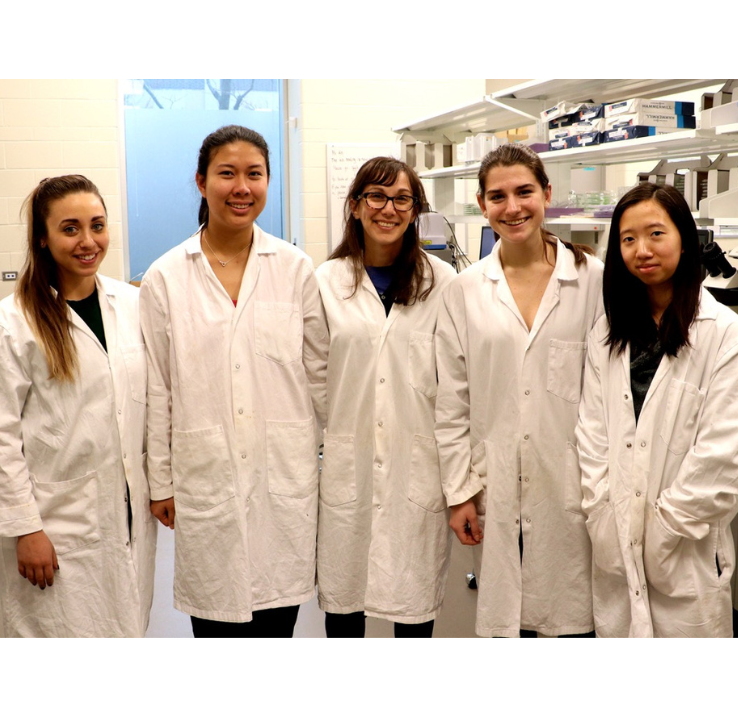
What is the biggest challenge you face as individuals to reduce your plastic pollution?
Rafaela F. Gutierrez: I'm trying to reduce plastic consumption at my [house], little by little. I get overwhelmed if I try to reduce everything at once. And that's what we say every time we are in a group. For example, in January we had our home waste audit. It's an outreach education activity where people need to track their waste for 4 weeks. We encourage them to look into their waste management, and they need to learn new things about how they can reduce waste. When I did it, it was bread bags. We eat a lot of bread-- like how we can reduce these? And so we started to make more bread at home.
Chelsea Rochman: We need society or the industry basically to help, because, for example, this morning I went into a coffee shop with my own mug, and they wouldn't allow me to use it, and they gave me a paper cup with a plastic lid, and so sometimes it's just making the other choices accessible and not expensive.
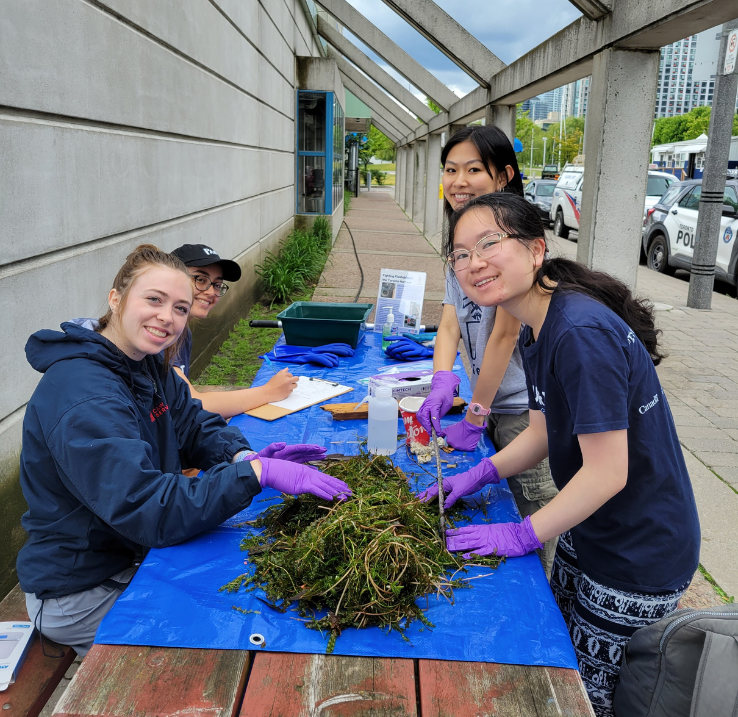
If we gave you a magic wand and you could change anything on this planet to help the environment. What would you change?
Rafaela F. Gutierrez: So my wish is to have many wishes, but if we're talking about plastic here, I wish we have reusable systems in place in all the cities and places that we visit, where we don't need to have as much as single-use items as we have right now. That would be my first wish.
Chelsea Rochman: I think it would be around the use of fossil fuels because they are also used to create plastics. And so I guess if I had a magic wand now, I would reduce our use of fossil fuels and stop subsidizing them. You'd be able to incentivize a switch from virgin cheap plastic to a more reusable recyclable circular economy.
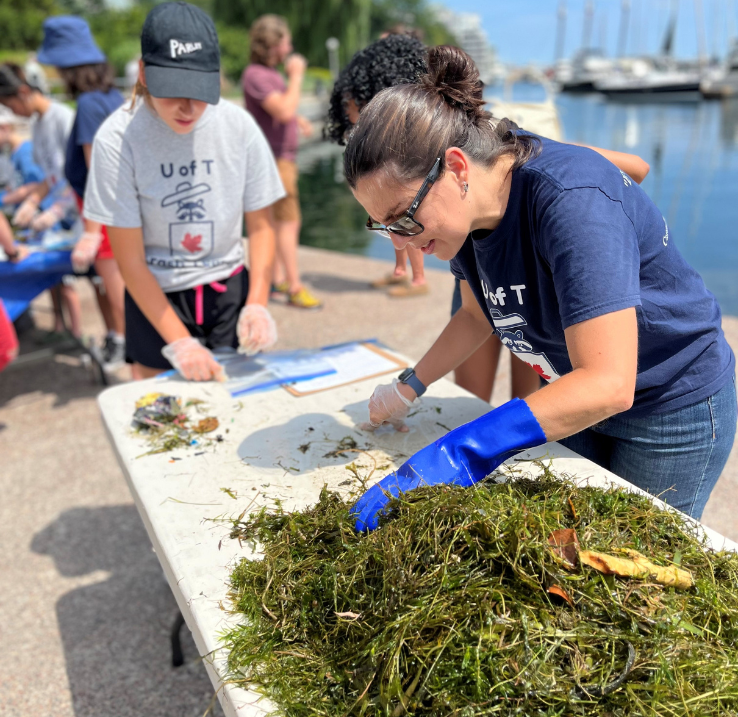
Looking for more information on waste literacy and the U of T Trash Team's work? Click here to visit their website.
This conversation has been edited and condensed.
Want to learn more about plastic pollution? Check out our 4 new collections!
Community
Bringing blue learning into Atlantic classrooms

Bringing blue learning into Atlantic classrooms
The importance of ocean literacy: why it matters to us all
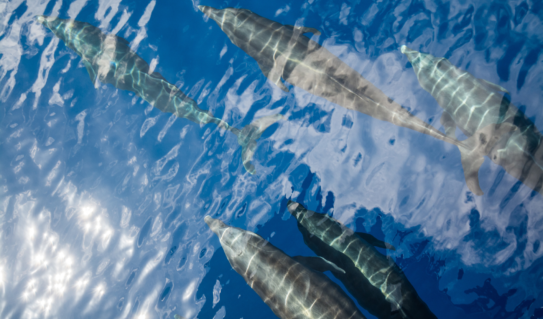
The importance of ocean literacy: why it matters to us all
What you need to know about our astonishing ocean
